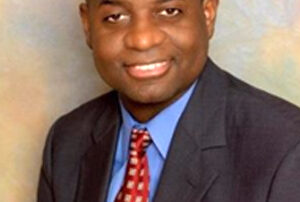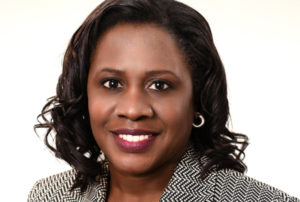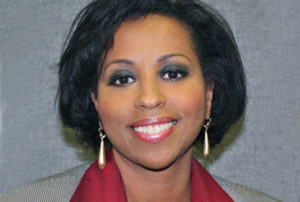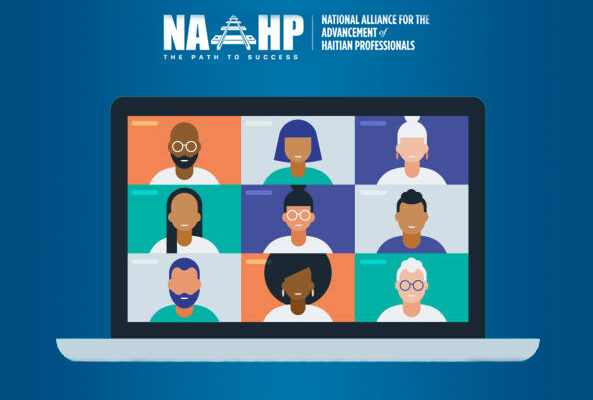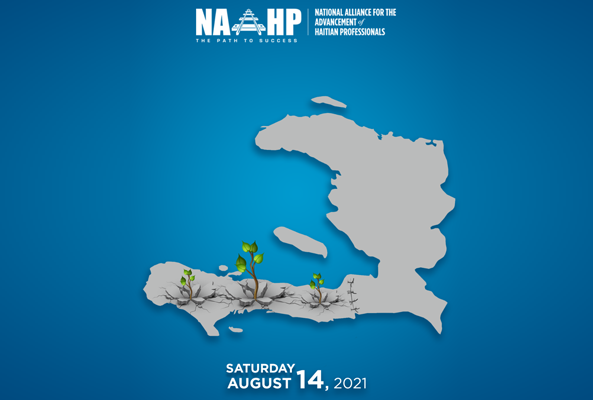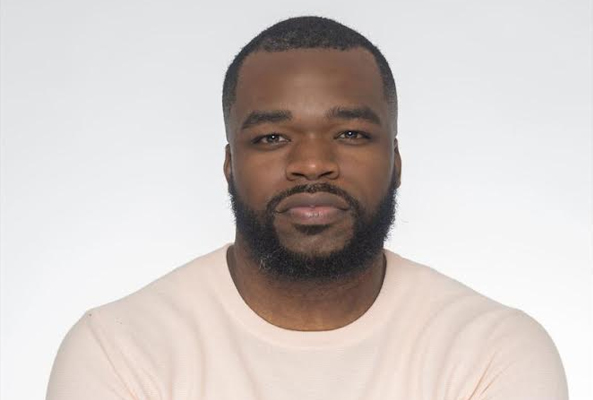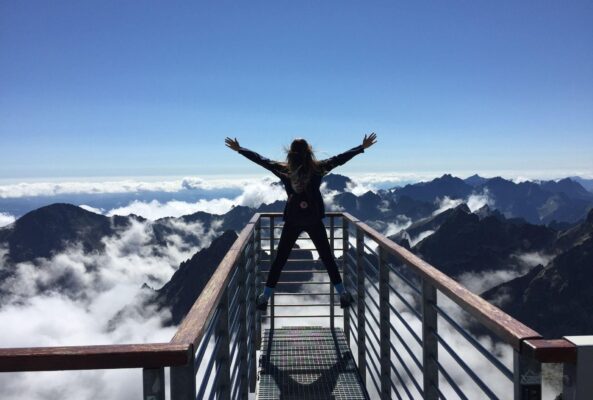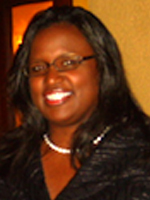
Dr Linda Marc
Dr. Linda Marc
Education and Curriculum Development Director
Preparedness and Emergency Response Learning Center (PERLC)
Division of Policy, Translation and Leadership Development
and Department of Biostatistics
Harvard School of Public Health
Website: PERLC
Dr. Linda Marc is currently the Education and Curriculum Development Director within the Preparedness and Emergency Response Learning Center (PERLC) at the Harvard School of Public Health. On the PERLC Core Curriculum Committee she is the lead faculty member for ensuring that cultural issues relevant to vulnerable populations (e.g., ethnic minorities, multilingual audiences, immigrant and lower socioeconomic status groups) are addressed when developing instructional models for PERLC. Her research focuses on mental health and HIV with emphasis on psychosocial factors that influence exposure to HIV in Haiti, such as post-disaster sexual violence, risky behaviors, and barriers to accessing HIV treatments.
Tell us about yourself
I am Haitian-American born in New York City.
What led you to pursue your career?
I always wanted to be a doctor since I was a young child. When I matriculated into college I felt drawn to the field of psychology yet continued to pursue coursework in biology and chemistry. In my junior year I switched major’s to pursue psychology with the intention of getting a PhD. However, during my first class in statistics I kept earning 100% on exams. My professors pulled me aside and suggested I consider pursing graduate coursework in public health, where population statistics are necessary to understand disease rates in populations.
How were you able to get started?
I took my professors advice very seriously to explore a career in population statistics, and obtained a job starting as a data clerk at Columbia University School of Public Health. My career in public health started very early at age 19.
When did you realize that you were making real progress with your career?
As the child of immigrants I went to work right away and obtained my second position as a Public Health Advisor within the AIDS Surveillance Unit of the New York City Department of Health. I was promoted within 1 year to Senior Public Health Advisor and assisted the Medical and Public Health Epidemiologists to generate the monthly statistical reports on HIV/AIDS for New York City. I was then given additional responsibilities to present the monthly AIDS Surveillance Reports to public health officials, researchers, and academicians who attended our meetings.
Certainly I wanted to pursue a doctorate at some point, in medicine, psychology or public health, however keep in mind that my parents new very little about the range and types of universities in the US. The goals set for me and my siblings was to see us graduate college, get a degree. However, how and where were left up to us [the children]. Hence, the conversation about attending an Ivy League had not been part of the discussions growing up.
Thus, in my second year as a Senior Public Health Advisor I realized that I was making real progress in my career when I was accepted to Yale School of Public Health to earn a Master’s in Public Health (MPH). My opportunity to apply to Yale was by chance. One night in my early 20s hanging out with friends on Halloween I met someone in a Pirates costume who shared he was pursuing Public Health at Yale. The next week this young man sent me an application for Yale and I applied. A few months later I received an invitation to meet faculty at the School of Public Health, thereafter followed my acceptance letter.
This experience taught me the importance of developing friendships with people who had similar interests because through their network of friends there is the possibility of forming new relationships with individuals who have similar interests.
Two years later, upon graduating from Yale with a Master’s in Public Health I was very blessed to have been recruited as an Epidemiologist at Fortune 500 companies. My internship was at Ciba-Geigy Pharmaceuticals, then Wyeth Labs then Merck & Co. I have also served as a consultant for Aventis, Pfizer, GlaxoSmithKline and Parke-Davis.
It was following these corporate experiences that I decided to pursue doctoral studies at the Harvard School of Public Health. I received a full tuition scholarship. After Harvard I pursued two post-doctoral training programs at Cornell School of Medicine and Harvard Medical School. These training programs were funded by the National Institutes of Mental Health, and my course of study focused on mental health and HIV in vulnerable populations.
What have been some of your professional highlights?
Since 2007 I have been very proud to serve as an Advisor to the US Census Bureau, and have an appointment to the National Advisory Committee on Race, Ethnicity and Other Populations. In this role I advise on the coverage and measurement of persons who are of African descent, which helps to support census-taking activities.
Specific to Haitian health, I am most proud of using my skills in population statistics to help de-mystify the notion that Haitians have a higher AIDS rate than other ethnic groups. From 2005 to 2010 I led a team of researchers to investigate the AIDS rate amongst Haitian immigrants in the US. The team was made of scientists from the Centers for Disease Control and Prevention, Harvard Medical School and the National Haitian-American Health Alliance [www.nhaha.org]Study findings show that Haitians have a slightly lower AIDS rate than African-Americans, and this was published widely in all major newspapers across the Caribbean regions, as well as the Boston Globe, Orlando Sentinel, Chicago Tribune and Wall Street Journal online.
Here is a link to the Globe article — > http://www.boston.com/news/health/blog/2010/07/_in_the_early_d.html
Committed to working on Haitian issues 100%, I am now working in collaboration with the Ministry of Health investigating access to HIV treatments for female victims of sexual violence. I am also the member of an international team that completed the first study on the prevalence of HIV amongst Haitian men who have sex with men. Support for the latter project was from Haiti’s National AIDS Program within the Ministry of Health funded by PEPFAR, Global Fund, KfW and Housing Works. In addition, in 2011 I investigated the prevalence of post-disaster sexual violence amongst women living in post-earthquake camps. Data for this project is currently being analyzed. For individuals interested to read more on my work follow these links –
http://onlinelibrary.wiley.com/doi/10.1111/aji.12053/abstract
What have been some of the challenges you’ve had to face?
Certainly diversity in the workforce and opportunities for professional advancement has been a re-occurring concern in my professional experience. In almost all positions I have held there are few, if any persons of African descent; and few if any mentors of color who could advise me. So very early in my career I decided to develop a network of mentors in the same or similar field.
At any given time I could have 10 mentors I could reach out to for different topics/issues – whether methodology, career networking, social functions or to discuss my perceptions of race/sex discrimination in the workplace.
Looking back I have a very wide network of colleagues of multi-ethnic backgrounds who have been extremely supportive of my professional development over the years. Very often these relationships were based on common professional interests, similar academic backgrounds or common hobbies (e.g., I like to go fishing, I love to travel, I go to museums, I am a member of the Yale Club in New York, and Harvard Club in Boston, and while living in New York attended shows at Lincoln Center all the time, inviting colleagues and friends to share my seasonal tickets).
Do you personally know other Haitians in your field?
Yes, I have a handful of Haitians who pursued degrees in Public Health (MPH and doctorate). I seek their advice frequently to make sure we are defining the ‘public health problem’ appropriately as it pertains to Haitians. In so doing we can better refine the approach for further study and/or solution. Many of my colleagues are also members of the National Haitian-American Health Alliance [www.nhaha.org].
Do you feel as though you’ve helped break barriers?
I don’t know whether my work will break barriers in the US, but I think yes in Haiti. There are few Haitian-Americans who have successfully collaborated with actors within the Haitian government to achieve common goals around health. Despite administration, I have collaborated well with civil servants and governmental officials from the Ministry of Health, Ministry of Interior, Ministry of Haitians Living Abroad, as well as with diplomats posted at the US Consulates and Embassy.
What do you feel is next for your career?
I like what I am doing and would like to keep doing it! I am passionate about improving Haitian health particularly for Haitians affected by HIV/AIDS.
What would be your advice to young people who want their careers and lives to have an impact?
Stay focused on your higher goals; seek out friends with similar goals but most of all develop a personal sense of SELF DISCIPLINE that influences your academic, professional, personal AND romantic relationships. With SELF DISCIPLINE one is able to set limits, boundaries and expectations for all types of relationships.
Another way to think about this is referred to as “reciprocal determinism”. This theory was set forth by psychologist Albert Bandura, and states that a person’s behavior both influences and is influenced by personal factors and the social environment. Implicitly, the social environment will also interact with the persons’ behavior and personal factors. So it’s really up to the individual to decide what they want to put out there…because it’s what you are going to get back!
What do you think can be done for Haiti to develop financial assistance without having to be reliant upon others in times of crisis?
We must learn how to influence the leaders within Haiti, and learn how to partner with them on common interests to develop better solutions for sustainable efforts.
Do you believe a campaign highlighting the positives of Haiti would be worth exploring to take away the stigma of it being impoverished?
Certainly, yes.
Would you recommend NAHP to Haitian students and professionals? Why?
Yes I would recommend NAHP to other Haitian students and professionals because we need to learn more about each other. We need to find the good amongst one another and promote it!
Haiti and Haitians must really learn how to collaborate and seek a common goal for the common good. NAHP potentially serves as an important vehicle that can help facilitate the process of getting to know ourselves better.
I’d also like to thank the Chair of NAHP for giving me the opportunity to share my experiences. I hope my story will help others find their passion.

 English
English Français
Français Donate
Donate Partner
Partner Shop
Shop Login
Login